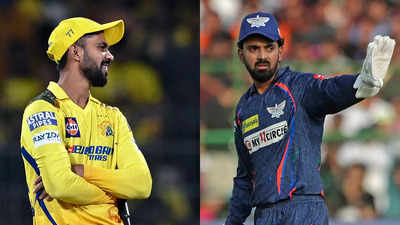Cricket Prediction Algorithm

Estimated reading time: 5 minutes
Cricket is a massively popular sport, one of the most popular globally, so it’s a favourite of many punters. As is the case with most types of sports betting, cricket betting punters also want to find ways to boost their winnings with cricket prediction algorithms.
In the modern world, where AI and machine learning are growing in their effectiveness and scope, punters are increasingly interested in using betting algorithms and prediction models to improve their odds of winning and thus increase their overall winnings.
If that’s something you’re interested in, you’re in the right place. In this piece, we wanted to cover the topic of cricket prediction algorithms as much as possible by explaining what this algorithm is and how it works.
But, more importantly, we’ll tell you how effective these prediction solutions can be.
You should know, though, that this technology is still in its infancy, and you shouldn’t expect it to be a foolproof solution that will always yield correct predictions. But we’re getting ahead of ourselves, so let’s jump right in.
What Is a Sports Betting Algorithm and How Does It Work in Cricket?
To explain what a cricket prediction algorithm is, we need to explain what these algorithms are in the world of sports in general.
Without trying to cover the complexities of the technical side of these algorithms, in the general sense, a sports betting algorithm is effectively a mathematical formula that’s made to organise and evaluate the data you pour into it. In this case, that data is player and team statistics like past wins and other similar details. The mathematical formula uses all of that information to calculate future results of sports matches and events.
The same thing is applied in cricket to make cricket prediction algorithms. We already use algorithms for all sorts of prediction models, and sportsbooks use similar technology to create the odds they and you rely on in betting.
Naturally, the use of AI and machine learning in sports prediction is in an early stage of development, and there are no widespread solutions available. It’s not even clear how effective these solutions could be, and the few you can find at the moment, mostly made for research purposes, are nowhere near 100% effective.
Is It Possible to Accurately Predict the Outcome of a Cricket Match?
At the moment, no, not entirely. This is the case with any sport, not just cricket. The prediction algorithms expert programmers make can be effective, but they have their limits.
They can make reasonably accurate predictions based on the data you give them, but it’s almost impossible for them to account for the changes on the field. Their biggest problem is the inability to work out complexities like player injuries and, most notably, the changes in momentum that can and often occur in any game.
However, algorithms can have better use in sports that are easier to predict, for example, football. Unfortunately for us, cricket is notoriously difficult to predict, so prediction algorithms are very limited here.
For example, there is one more widespread calculation tool used in cricket — Winning and Score Predictor or WASP. This tool predicts scores and probable results in Twenty20 and One Day cricket matches.
The model uses factors such as the weather, pitch, boundary size, and more to predict the final total for the team batting first and the team batting second. The model is very effective, but it only calculates possible results, not a single result that’s the most likely to occur.
Others have used the so-called Naive Bayes approach to predict winners of ODI games, but only for research purposes. The model uses variables like batting, team composition, bowling, and more. Naturally, many essential variables are left out as it’s impossible to use them all with the current technology.
The model is still over 80% effective, but it was only used in research, so we can’t know if its actual practical application would be effective.
This is just one model, and other research studies were done using different models, but the important thing is that you cannot use any of them on your own. They require a lot of expertise in AI and machine learning, and human influence is always necessary for the algorithms to work with meaningful accuracy in real-life situations. In other words, you can’t just find an algorithm and let it do its work and expect it to give you foolproof predictions.
Should You Use Cricket Prediction Algorithms?
In all honesty, it’s hard to answer this, primarily because the technology is still in its infancy. AI and machine learning haven’t been used enough in sports predictions. The technology itself is not capable enough of accounting for every possible variable in a sports game, especially when that game is as complex as cricket.
Naturally, the existing solutions have their use and are certainly effective to a degree. It’s one of the reasons why some punters use algorithms, but they are always used as supplements, not as foolproof solutions on which you can rely 100%. If that were the case, sports betting wouldn’t exist as it wouldn’t be profitable for sportsbooks and bookies. That’s why you still need a sound betting strategy.
Thankfully, the algorithms are growing in power, scope, and capability, so they are certainly bound to become more valuable in the days yet to come. You should follow this development as there might soon be a time when every bettor wants to use algorithms in their betting strategies.



